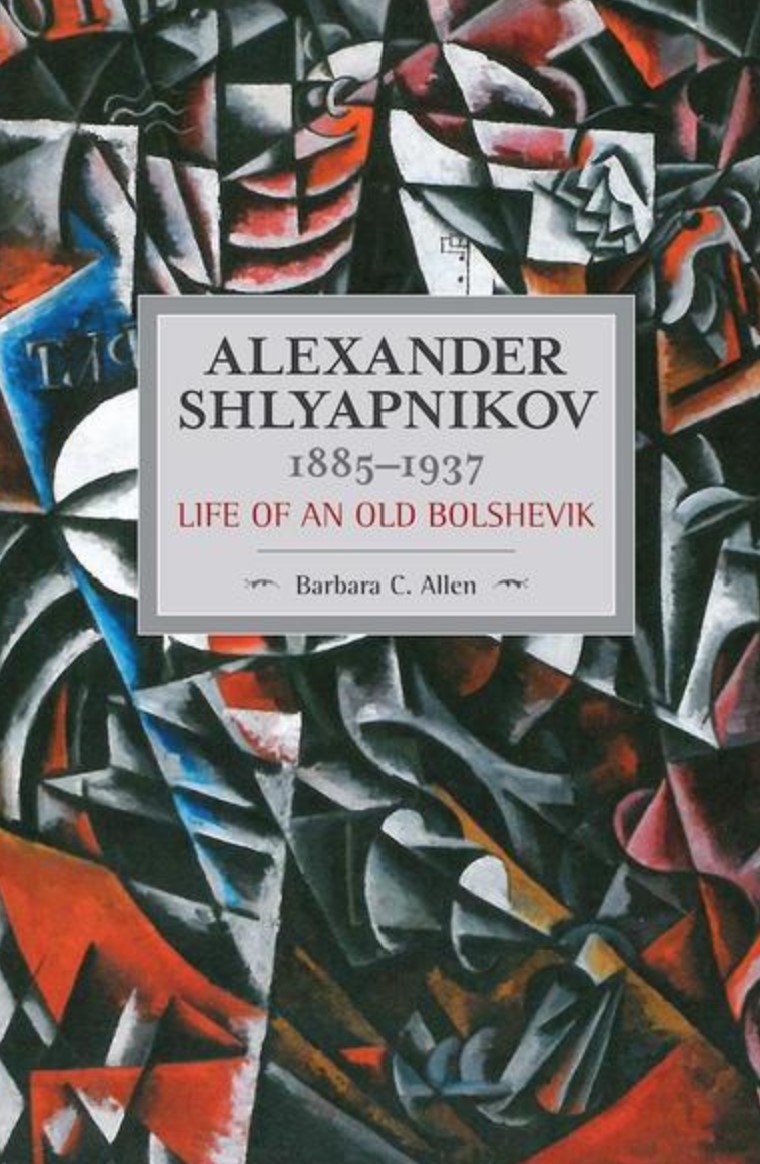Barbara C. Allen, La Salle University
In Alexander Shlyapnikov, 1885-1937: Life of an Old Bolshevik, Barbara Allen recounts the political formation and positions of Russian Communist and trade unionist, Alexander Shlyapnikov. As leader of the Workers’ Opposition (1919–21), Shlyapnikov called for trade unions to realise workers’ mastery over the economy. Despite defeat, he continued to advocate distinct views on the Soviet socialist project that provide a counterpoint to Stalin’s vision. Arrested during the Great Terror, he refused to confess to charges he thought illogical and unsupported by evidence. Unlike the standard historical and literary depiction of the Old Bolshevik, Shlyapnikov contested Stalin’s and the NKVD’s construct of the ideal party member. Allen conducted extensive research in archives of the Soviet Communist party and secret police.
Biographical note
Readership
Reviews
Lara Cook, forthcoming inRevolutionary Russia (June 2016)“Drawing on material from seven archives, five in Russia and two in the United States, as well as extensive conversations with the Shlyapnikov family, Barbara Allen has provided the definitive biography of Alexander Shlyapnikov and made a lasting contribution to Soviet history in its first two decades. […] a must for scholars in the field and is highly recommended for graduate students who will find the chapter introductions and conclusions an excellent guide to a complex and thorough work.”
Alexis E. Pogorelskin, University of Minnesota-Duluth, forthcoming in the journal Canadian Slavonic Papers (2016)”Die Biographie ist eine exemplarische Studie über den Aufstieg und Fall einer Personengruppe, die gemeinhin unter dem Begriff „Altbolschewiki“ subsumiert wird. Schljapnikow steht stellvertretend für eine Generation von russischen Revolutionären, die im späten Zarenreich aufwuchsen und sozialisiert wurden, während der Revolution von 1917 an die Macht gelangten und im Bürgerkrieg obsiegten, nur um nach Lenins Tod allmählich ins Abseits gedrängt und später von Stalin vernichtet zu werden. Schljapnikows Lebensweg besitzt ein Veranschaulichungs- und Erklärungspotential, das zum besseren Verständnis überindividueller historischer Prozesse und Phänomene beitragen kann.
Barbara Allen hat den biographischen Ansatz vorbildlich angewendet. Ihr durchweg gut lesbares Buch sollte Osteuropahistorikerinnen und -historikern als Ermutigung dienen, der Biographie mehr Aufmerksamkeit zu schenken.”
Andreas Oberender, H-Soz-Kult, 12.11.2015
Table of contents
Acknowledgements
List of Abbreviations and Acronyms
Introduction1. From the Old Belief to Socialism
2. Emigration and the Revolutionary Underground
3. Organising Workers in the Revolutionary Year 1917
4. Labour Commissar
5. Defending Soviet Power and Unions in Civil War
6. The Workers’ Opposition and the Trade-Union Debate
7. Early NEP and the Trade Unions
8. Appeal of the 22 to the Communist International
9. Factional Politics in the NEP Era
10. Late NEP, Industrialisation and Renewed Repression
11. Purged from the Party
12. Exile, Arrest and PrisonConclusion
Bibliography
Index


